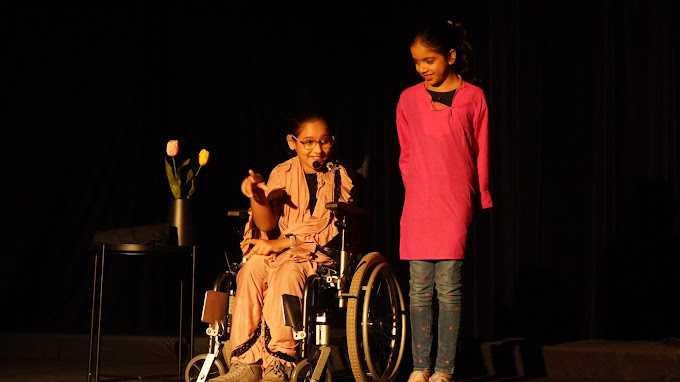Types Of Theatre Programs: Academic, Community, And Professional
Hello, dear readers! Today, I am thrilled to delve into the vibrant world of Theatre programs, highlighting their crucial role in fostering the growth of budding writers. As a component of the “Spotlight On Skill” initiative spearheaded by Tamasha, led by the visionary Deepika Rajani, where innovation flourishes, our goal is to cultivate the ambitions and imagination of every aspiring writer, irrespective of their background. Through this piece, my objective is to guide you through the diverse landscape of writing programs, unveiling their wide range of opportunities and aiding you in discovering the perfect fit for your creative pursuits.
Introduction
The world of theatre encompasses a diverse array of programs and institutions, each with its unique focus, goals, and audience. From academic institutions nurturing aspiring actors and directors to community theaters fostering artistic expression within local communities and professional theaters showcasing world-class productions, theatre programs play a vital role in promoting creativity, cultural enrichment, and social engagement. This article explores the distinct characteristics and contributions of three main types of theatre programs: academic, community, and professional.
1. Academic Theatre Programs
Academic theatre programs are offered by educational institutions such as colleges, universities, and conservatories. These programs provide comprehensive training in various aspects of theatre arts, including acting, directing, design, playwriting, and technical production. Academic theatre programs typically offer undergraduate and graduate degrees, as well as certificate programs, catering to students with diverse interests and career aspirations in the performing arts.
Curriculum and Course Offerings: Academic theatre programs offer a broad spectrum of courses covering theoretical and practical aspects of theatre, ranging from theatre history and dramatic literature to performance techniques and stagecraft. Students may have the opportunity to participate in productions, workshops, and internships to gain hands-on experience and apply their skills in a real-world setting.
Faculty and Staff: Academic theatre programs are staffed by experienced faculty members who are experts in their respective fields, including seasoned actors, directors, designers, and scholars. These faculty members provide mentorship, guidance, and support to students, nurturing their artistic growth and academic development.
Opportunities for Student Involvement: Academic theatre programs offer numerous opportunities for students to get involved in theatrical productions both on and offstage. Whether performing in mainstage productions, assisting with technical aspects such as lighting and sound, or participating in student-directed showcases, students gain valuable experience and exposure to the collaborative nature of theatre.
2. Community Theatre Programs
Community theatre programs are grassroots organizations that bring together individuals from the local community to participate in theatrical productions and activities. These programs serve as vibrant hubs of artistic expression, fostering creativity, community engagement, and cultural enrichment. Community theatre groups may operate independently or in collaboration with schools, cultural centers, or recreational facilities.
Inclusivity and Accessibility: Community theatre programs welcome participants of all ages, backgrounds, and experience levels, making them accessible to individuals with a passion for theatre regardless of their professional aspirations. Amateur actors, seasoned performers, and enthusiasts alike come together to share their love of the performing arts and contribute to the collective creative process.
Community Engagement: Community theatre programs play an essential role in engaging with the broader community through outreach initiatives, educational programs, and public performances. These programs strengthen social bonds, promote cultural diversity, and enrich the quality of life within the local community by providing accessible and affordable cultural experiences for audiences of all ages.
Collaborative Spirit: Community theatre productions rely on the collaborative efforts of volunteers, including actors, directors, designers, technicians, and support staff. The sense of camaraderie and teamwork fostered by these programs creates a supportive and inclusive environment where participants can learn, grow, and connect through their shared passion for theatre.
3. Professional Theatre Programs
Professional theatre programs are established organizations dedicated to producing high-quality theatrical productions for public audiences. These programs are typically associated with professional theatre companies, repertory theaters, regional theaters, and Broadway productions, showcasing the talents of professional actors, directors, designers, and technicians.
Artistic Excellence: Professional theatre programs prioritize artistic excellence and innovation, striving to present compelling and thought-provoking productions that resonate with audiences. These programs often feature renowned playwrights, directors, and performers, attracting theatergoers seeking exceptional performances and groundbreaking theatrical experiences.
Commercial and Nonprofit Models: Professional theatre programs may operate under various financial models, including commercial ventures focused on profitability and box office success and nonprofit organizations dedicated to artistic integrity, cultural enrichment, and community engagement. Regardless of their organizational structure, professional theatre programs are committed to delivering high-quality productions that captivate and inspire audiences.
Cultural Impact: Professional theatre programs play a crucial role in shaping cultural discourse, challenging societal norms, and fostering dialogue on pressing social issues. Through provocative works of drama, comedy, musical theatre, and experimental performance, these programs contribute to the cultural landscape and stimulate critical thinking, empathy, and understanding among audiences.
Conclusion
In conclusion, theatre programs encompass a diverse spectrum of institutions and organizations, each with its distinct mission, audience, and contributions to the performing arts landscape. Whether through academic institutions nurturing the next generation of theatre professionals, community theaters fostering creativity and inclusivity within local communities, or professional theatre companies producing world-class productions for global audiences, theatre programs play a vital role in promoting artistic expression, cultural enrichment, and social engagement. By embracing their unique strengths and fostering collaboration across different sectors of the theatre industry, these programs contribute to the vitality and resilience of the theatrical arts, ensuring their sustained importance and influence in the upcoming years.
Stay tuned for more insightful blogs on how drama can positively impact children’s lives!




































